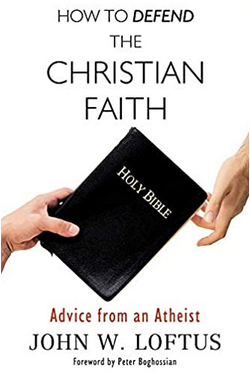Another Chapter by Dr. David Eller: "Christianity Does Not Provide the Basis for Morality"
This is his Chapter 13 from my anthology "The Christian Delusion." Enjoy.
Christianity Does Not Provide the Basis for Morality by Dr. David Eller.
Imagine someone said to you that English provided the only basis for grammar. After you overcame your shock, you would respond that English is certainly not the only language with a grammar. You would add that grammar is not limited to language: understood broadly as rules for combination and transformation, many phenomena have a grammar, from sports to baking. Nor is grammar the sole or essential component of language: language also includes sound systems, vocabularies, genres, and styles of speech. And you would remind the speaker that grammar does not depend on human language at all: some nonhuman species, including chimps and parrots, can produce grammatical—that is, orderly and rule-conforming—short sentences. Ultimately, you would want to explain that English does not “provide a basis” for grammar at all but rather represents one particular instance of grammar. English grammar is definitely not the only grammar in the world and even more definitely not the “real” grammar.
The person who utters a statement like “English provides the only basis for grammar” either understands very little about English (and language in general) or grammar, or the person is expressing his or her partisanship about language (i.e., pro-English)—or, more likely, the speaker is doing both. Thus, the person who utters a statement like “Christianity provides the only basis for morality” either understands very little about Christianity (or religion in general) or morality, or the person is expressing his or her partisanship about religion (i.e., pro-Christianity)—or, more likely, the speaker is doing both. But, as a savvy responder, you would answer that Christianity is certainly not the only religion with morality. You would add that morality is not limited to religion: understood broadly as standards for behavior, many phenomena have a morality, from philosophy to business. Nor is morality the sole or essential component of religion: religion also includes myths, rituals, roles, and institutions of behavior. And you would remind the speaker that morality does not depend on human religion at all: some nonhuman species demonstrate moral—that is, orderly and standard-conforming—behavior. Ultimately, you would want to explain that Christianity does not “provide a basis” for morality at all but rather represents one particular instance of morality. Christian morality is definitely not the only morality in the world and even more definitely not the “real” morality.













